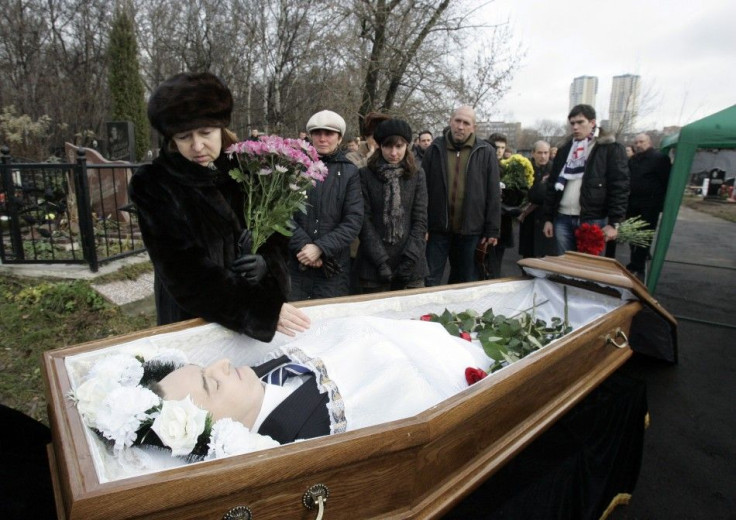Russian Lawyer Sergei Magnitsky Convicted Of Tax Evasion After Death In Prison

Sergei Magnitsky, a Russian lawyer, died in jail in 2009 but was convicted of tax evasion posthumously. Despite the circumstances, convicting the dead is far from unusual.
According to Reuters, Magnitsky died while being held in jail as he awaited trial in 2009 for tax evasion. Magnitsky claimed he was mistreated in jail in order to coerce a confession for tax evasion. William Browder, currently residing in the UK and a former client of Magnitsky, would go on to organize a campaign that attempted to reveal the extent of corruption within the Russian prison system after the lawyer’s death and was sentenced to nine years in jail for his role in the case.
Browder was the head of Hermitage Capital Management and was being investigated for tax evasion by Russian officials. According to the claims, Magnitsky was mistreated and was pressured to give evidence against his former client, Reuters reports. In an independent investigation of Magnitsky’s claims of mistreatment, the Kremlin’s human rights council found evidence that suggested the lawyer was beaten to death, although President Vladimir Putin denied those claims of abuse and stated Magnitsky died of heart failure.
A case against the sole Russian official charged with a crime connected to Magnitsky’s death was dismissed by a court following public remarks by Putin defending the officials, Reuters reports. Magnitsky’s death caused a stir internationally, and the United States passed legislation that prevents any Russian believed to be linked to Magnitsky’s death, or linked to other possible human rights violations, from entering the U.S. and also freezing any assets in the country. The U.S. released the Magnitsky list of 18 Russian officials accused of human rights abuses in April 2013, and Russia responded in kind, releasing a list of 18 Americans who are accused of human rights abuses.
Magnitsky was working on a case that would have exposed widespread corruption and fraud by Russian officials and was placed in jail without a trial. As a result of the passage of the Magnitsky Act, Russia passed legislation that banned adoptions by U.S. parents of Russian children.
While this is Russia’s first posthumous trial, it is not the only posthumous trial in history. The Associated Press lists several notable posthumous trials that convicted the dead, including the bizarre case of Pope Formosus, whose corpse was exhumed and put on trial for perjury and violating canon law in 897. Pope Formosus was convicted, and the trial became known as Cadaver Synod.
© Copyright IBTimes 2024. All rights reserved.












